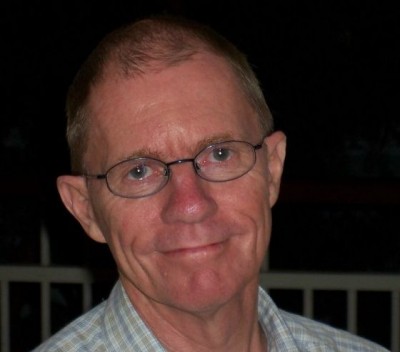
What did you want to be when you were 10 years old? Is the career you're in now something you ever thought you would be doing?
I cannot recall any clear aspirations as a 10-year-old. My career has been a journey of exploration, with the journey being as important as the destination.
I started off in finance and commerce, then at the age of 35 I came to UQ and spent five years as a full-time student. After gaining qualifications in clinical psychology, business, and then management psychology, I moved into research within UQ Business School, then education and training. Eventually I started my own consultancy which has been running very successfully for eight years.
Could you describe your current role?
I offer services as a social researcher, facilitator and coach. I’m a one-person operation with all of the joys and challenges that entails. I am presently engaged in a two-year research project examining the social health of the Australian seafood industry.
What is the most challenging part of your career?
Regardless of my formal role, I’m first and foremost a social researcher and whichever organisation I’m working in becomes the object of my curiosity. I often feel like an undercover investigator! As anyone who has ever worked in a hierarchical organisation knows, asking questions is not always welcome.
What is your proudest career achievement?
My doctorate helped me to understand the unconscious blockages to innovation that exist, even in organisations which pursue innovation. I then needed to find ways to overcome these blockages.
I went on to develop ‘Co-operative Conversations’, a suite of conversational tools that free up the creativity that lies dormant in many organisations. These simple tools, though counterintuitive, help people to contribute willingly, to listen respectfully, to consider deeply, and to decide wisely. More importantly, they halve the time of any meeting. My greatest joy is seeing the delight in people’s eyes as they discover the benefits.
How does the future look for your role?
It looks extremely bright. Meetings and conversations are the glue that binds people together within organisations yet for many, meetings are a source of frustration and low productivity. ‘Co-operative Conversations’ provide the liberation.
What are your recommendations for anyone wanting to work in this sector?
The days of a clear career path are long gone. Seek opportunities for new experiences – they may take you where you never could have imagined.
UQ Business School believes in 'Challenging the future'. For you, what will be the most challenging business topic in the next ten years?
Continuous growth is no longer possible on a planet with finite resources. The world needs steady state economics and accounting that takes social and environmental factors into consideration. For too long, business has privatised the profits and socialised the losses. For the sake of our children, that will need to change - and business schools such as UQ have the opportunity to lead this change.
What's your most positive memory of your time at UQ Business School?
I have many. On the Advanced MBA, my life was enriched by the company of fellow students from Bangladesh, Finland, Pakistan, Malaysia, Fiji, and Indonesia.
The research I carried out into Queensland country towns continues to have positive benefits in rural communities throughout Australia and beyond. And my doctoral studies answered many of the questions that have teased me throughout my life. For each of these, I’m very grateful.
What impact has the school had on the way you operate or think about business?
Moving from psychology into the multi-disciplinary business school gave me a breadth of focus while my doctoral research - ably guided by UQBS staff - gave me an appreciation for the centuries of scholarship that preceded it. ‘On the shoulders of giants’, as they say.
What impact would you like UQ Business School to have on business and the community?
We live in a complex world where the machinery of business and governance is no longer adequate to deal with today’s issues. So the starting point to crafting a healthy world is fostering a capacity, not to learn, but to unlearn. As Einstein put it: “We can't solve problems by using the same kind of thinking we used when we created them."
What mentor or inspirational figure has influenced you?
Dr Bob Dick, a respected psychologist and author, has - unknown to him - been my mentor since our paths first crossed at UQ in 1983. Whenever, I’m faced with a personal or professional dilemma, I ask myself: ‘What would Bob do?’
What key piece of advice would you give anyone wanting to become a sole practitioner?
Pursue your passion; act with integrity; and give more than you take.
Want to have the spotlight in the next Alumni e-news? We'd love to hear what you've been up to since graduating from UQ Business School. Share your story with us



